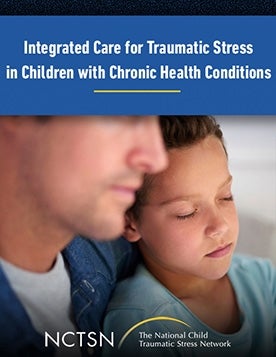
Integrated Care Approaches to Traumatic Stress in Children with Chronic Health Conditions
Offers information on integrated care approaches to supporting children and families dealing with traumatic stress and chronic health conditions.
The following resources on child trauma were developed by the NCTSN. To find a specific topic or resource, enter keywords in the search box, or filter by resource type, trauma type, language, or audience.

Offers information on integrated care approaches to supporting children and families dealing with traumatic stress and chronic health conditions.
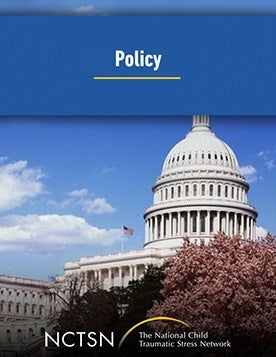
Provides an overview of several national policy challenges and solutions in the area of trauma and substance use.
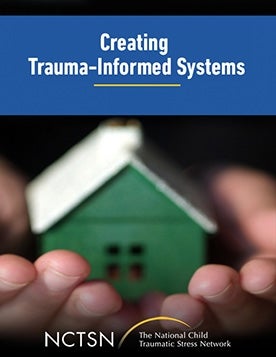
Shares how the Child Welfare Trauma Training Toolkit: 2nd Edition has been implemented in three different states by non-profit organizations, in partnership with their child welfare jurisdictions.
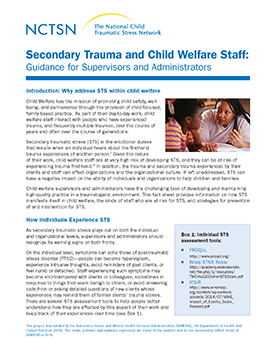
Gives supervisors and administrators in the child welfare system the information on the importance of addressing secondary traumatic stress (STS).
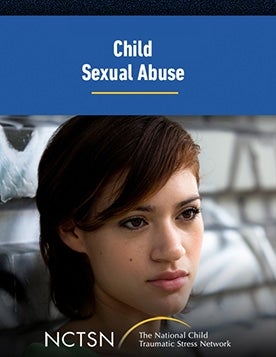
Discusses prevention and intervention strategies for child sexual abuse. This webinar gives ways to help prevent child sexual abuse, as well as intervention strategies upon disclosure.
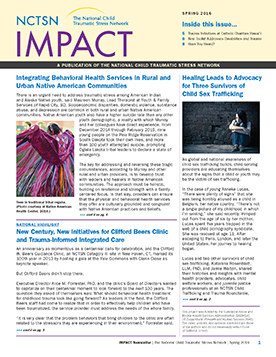
Describes integrating behavioral health services in rural and urban Native American communities, outlines the story of healing for three survivors of child sex trafficking, and other highlights.
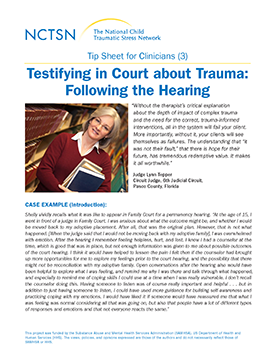
Provides information on the importance of follow-up after testifying. This fact sheet, a part of the Testifying in Court about Trauma series, focuses on follow-through for clinicians, clients, and their caregivers after the court process.
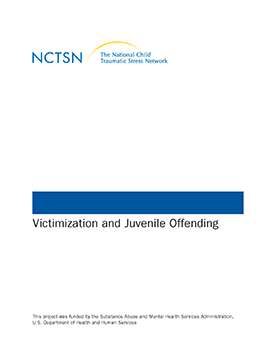
Discusses the correlation between victimization and juvenile offending.
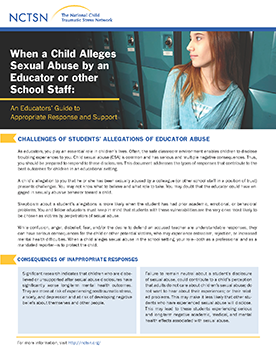
Provides educators and school staff information on the challenges that occur when there is an allegation of educator abuse.
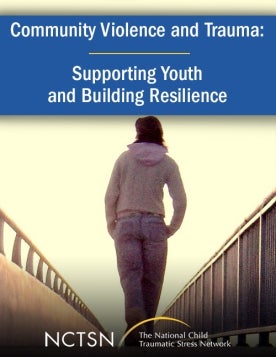
Provides expertise on the impact of violence on youth. This webinar presents best practices for prevention and trauma intervention for youth impacted by community violence and trauma.
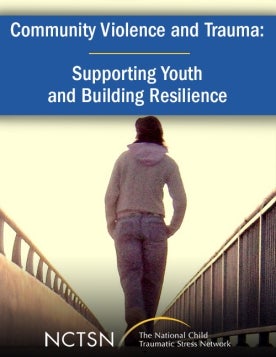
Explores both the historical and current causes for disproportionality.
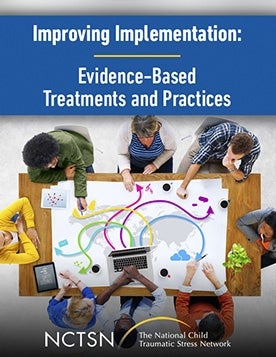
Is a compilation of resources stemming from the NCTSN Implementation Summit including the full Implementation Summit Panel video, bibliographies from the Summit and Implementation Task Force (ITF), an Implementation Glossary, Evidence-Based Treatment Resources Abstract list and more.